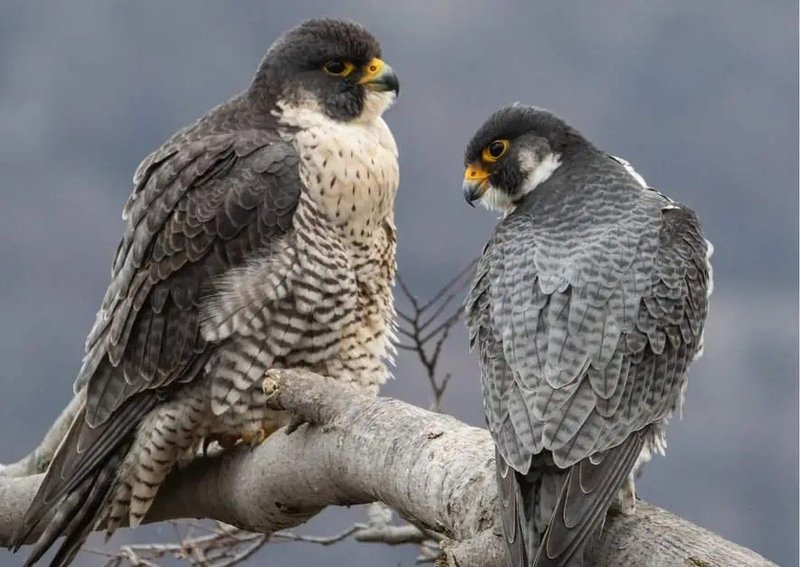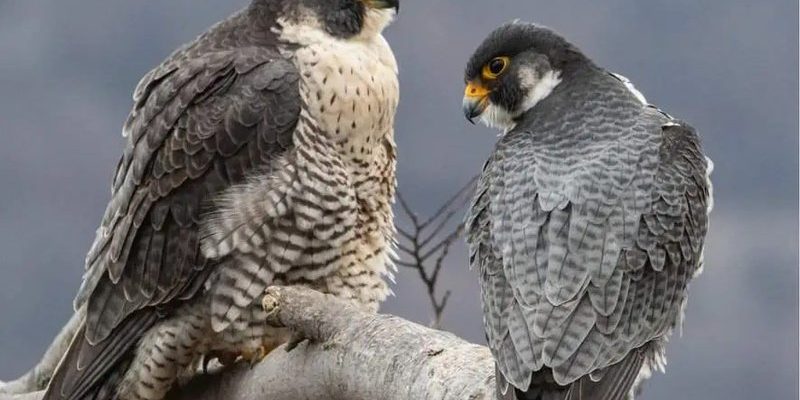
Imagine for a moment that you’re in a vast, open field. You see a falcon soaring high above, scanning the ground for prey with laser-like focus. It’s not just a matter of instinct; there’s a lot more going on in that sharp little head of theirs. In this article, we’re diving into the cognitive abilities and behaviors of falcons. We’ll explore their impressive intelligence, communication skills, and how they learn from their environment. So, if you’ve ever wondered just how smart these majestic birds really are, keep reading!
The Wonderful World of Falcon Intelligence
Falcons, like many birds of prey, exhibit impressive cognitive abilities that are essential for their survival. But what does that really mean? Well, their intelligence helps them navigate the challenges of hunting, mating, and finding shelter. In a way, it’s like they have their own little toolkit for success.
> Falcons are known for their problem-solving skills. They can adapt to various hunting techniques based on their environment and the type of prey available. For example, a peregrine falcon might switch from hunting in open spaces to hunting in wooded areas, depending on the season and food availability.
What’s fascinating is how they use their keen eyesight and sharp reflexes in combination with their intelligence. A falcon’s eyesight is not only sharp in identifying potential prey but also plays a crucial role in their hunting strategy. They can see prey from a great distance and quickly calculate the best angle to swoop down for the catch.
Hunting Strategies: A Testament to Their Smarts
Falcons are renowned for their impressive hunting techniques, which often showcase their intelligence in action. They don’t just rely on brute strength; they use their wits to outsmart their prey.
For example, when hunting small birds, a falcon might perform a high-speed dive known as a stoop. This isn’t just a random act; it’s a calculated move. The falcon knows its speed can catch the prey off guard, making the hunt more successful.
- Peregrine Falcons: The fastest creatures on Earth, capable of diving at speeds over 240 miles per hour!
- American Kestrels: They use a technique called “hovering” to catch insects mid-air, showing off their adaptability.
You might be wondering if other animal behaviors factor into their hunting. Well, yes! Falcons often observe other predators and learn from their tactics. This ability to adapt and learn from the environment highlights their cognitive flexibility.
Communication Skills: More Than Just Screeching
When we think about animal intelligence, communication often plays a big role. Falcons have a range of vocalizations and body language that they use to communicate with each other. This isn’t just about making noise; it’s crucial for their social dynamics and breeding behaviors.
Falcons use certain calls to alert their mates or warn other birds of danger. These vocalizations can indicate everything from claiming territory to signaling food sources. Isn’t that fascinating? Their ability to convey messages shows a level of social intelligence that’s quite remarkable.
Moreover, body language plays an integral part in how falcons interact. They might puff up their feathers, flap their wings, or even engage in aerial displays to impress potential mates. Each movement can signify different emotions or intentions, adding another layer to their communication.
Learning and Adaptation: The Power of Experience
One of the most impressive aspects of falcon intelligence is their ability to learn from experience. Just like humans, falcons can improve their skills over time. They might experiment with different hunting techniques and figure out what works best in various situations.
In some studies, researchers have shown that falcons can remember locations of food sources and even recognize individual humans. This ability to recall information helps them thrive in their environments. For example, if a falcon knows that a specific tree is a good place to find food, it will return there again and again.
You may find it surprising that young falcons often watch and learn from their parents. This apprenticeship can last for weeks, helping them build the skills they need to become successful hunters themselves.
Social Behavior and Group Dynamics
While falcons are often solitary hunters, they do engage in social behaviors, especially during breeding season. The social structures among falcons can showcase their intelligence and adaptability. They form pair bonds, and you’ll often see them performing elaborate courtship displays.
During this time, falcons engage in synchronized flying, where they seamlessly glide and swoop together. This not only strengthens their bond but also displays their fitness as potential mates. The way they interact can be quite complex and is a clear indicator of their social intelligence.
In some species, like the *Saker Falcon*, you might see them hunting cooperatively. This teamwork can lead to more successful hunts, showing that they are capable of strategic planning and collaboration.
Falcons in Urban Environments: Adapting to Change
With urbanization on the rise, falcons are increasingly found in city environments. This shift has forced them to adapt to new challenges, further proving their intelligence. They’ve learned to hunt pigeons instead of their traditional prey and even take advantage of tall buildings as nesting sites.
> Urban falcons can be quite resourceful. They often hunt near parks or other green spaces where prey is more abundant. Their ability to thrive in such environments demonstrates a remarkable level of adaptability and resourcefulness.
This adaptability isn’t just about survival; it’s about thriving in the face of change. Falcons have been observed using their cognitive abilities to navigate the complexities of urban life, showcasing their intelligence in new and unexpected ways.
So, how smart is a falcon? If we take a closer look, it’s clear that these birds are not just aerial athletes; they’re also intelligent creatures with problem-solving skills, impressive communication methods, and a knack for adapting to their environment. From their hunting strategies to their social interactions, falcons showcase a high level of cognitive ability that truly sets them apart in the animal kingdom.
The next time you see a falcon soaring overhead, take a moment to appreciate the complexity behind its flight. It’s not just instinct at play; it’s a clever mind navigating the world. Whether in the wild or in urban settings, falcons remind us of the beauty and brilliance of nature.
As we continue to study these incredible birds, we gain a deeper understanding of their place in the ecosystem and their remarkable intelligence. So, here’s to falcons and all the wonders they bring to our skies!

